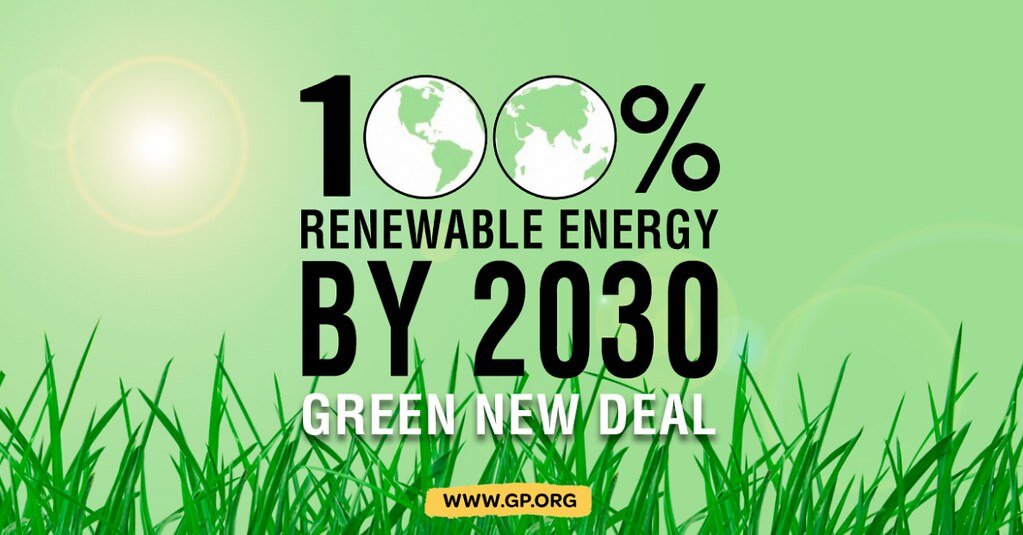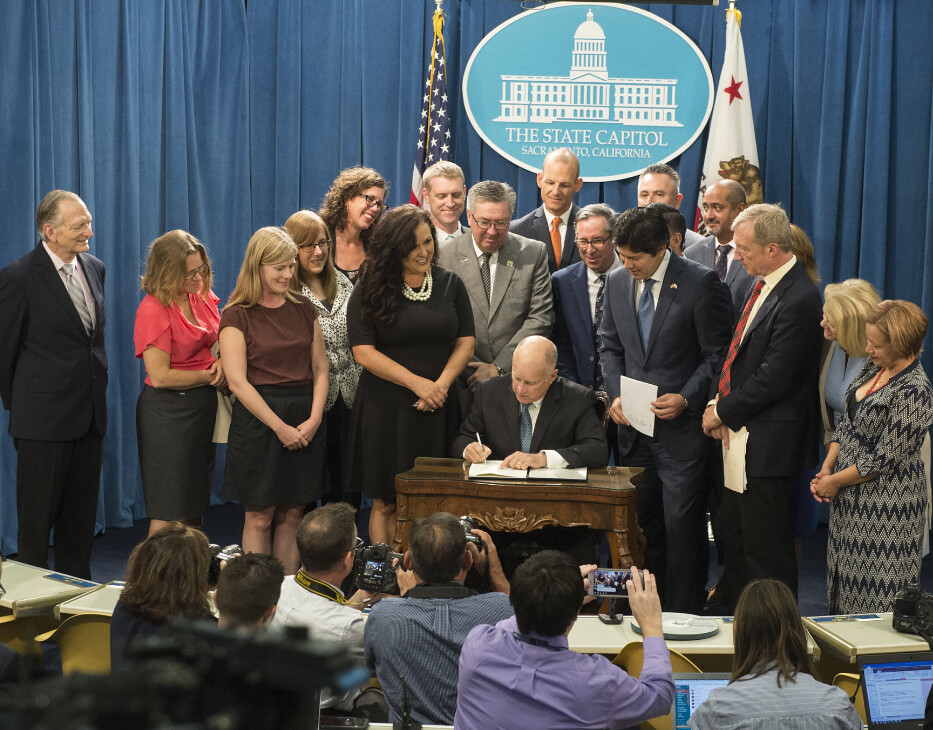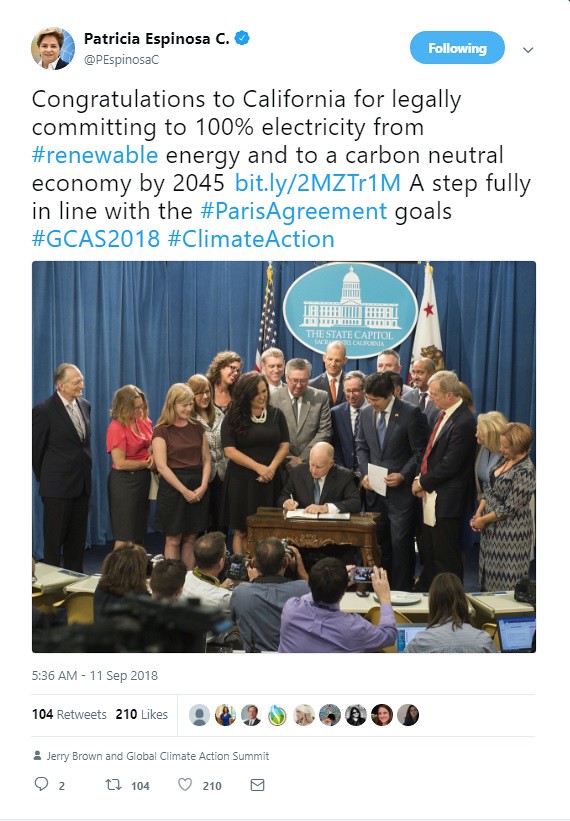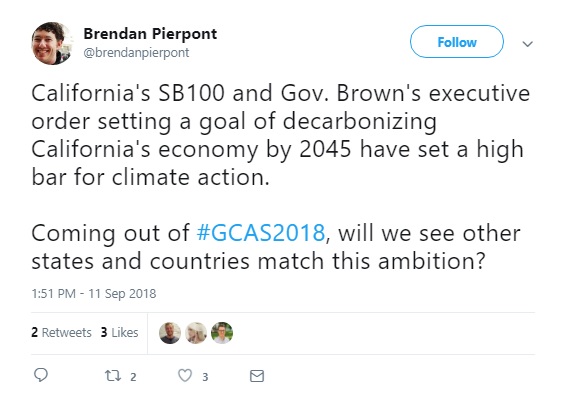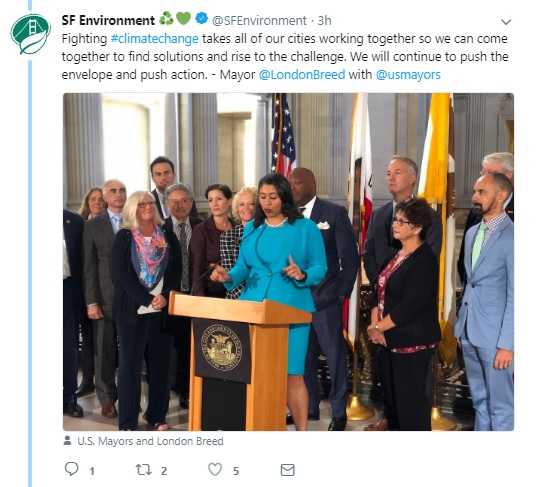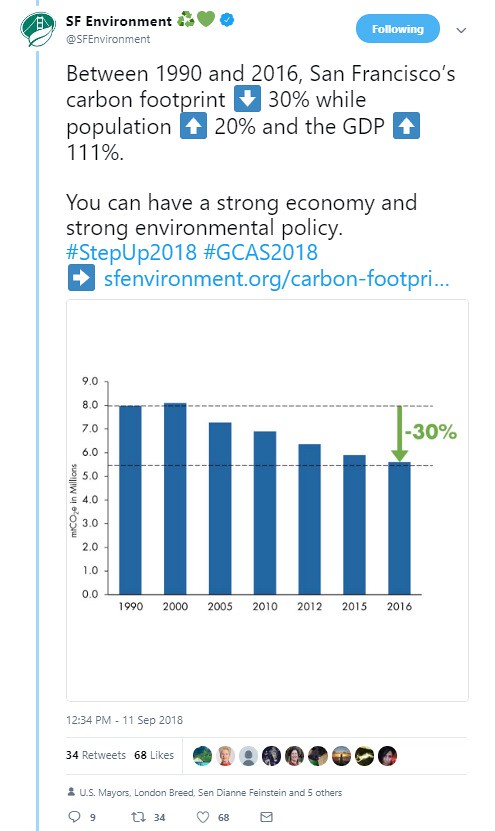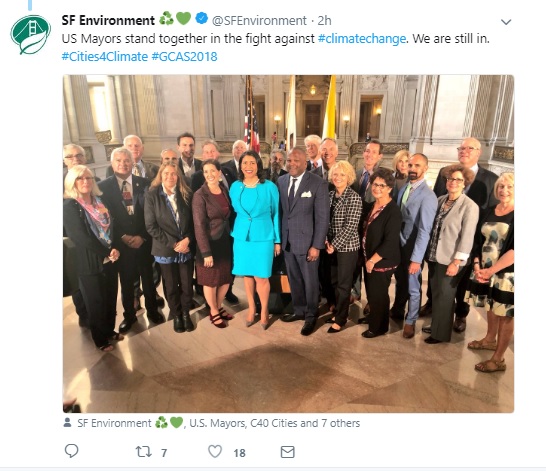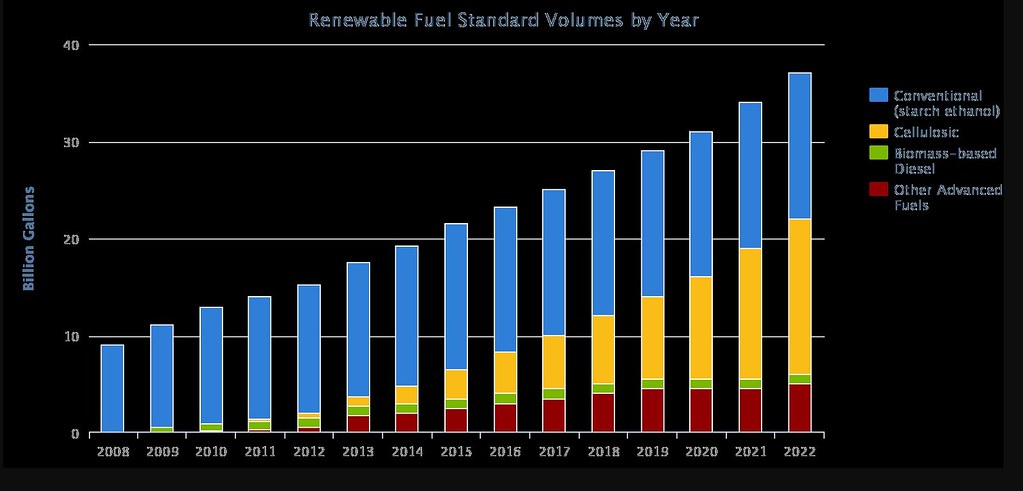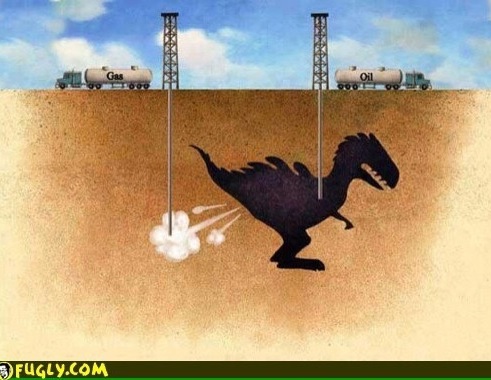Source: Green Party US
Last November, voters came to the polls in America and voted to change the House of Representatives from a republican majority to a democratic majority. Over the last two years, the erosion of the federal agencies oversight to enforce regulations to protect Americans from harm by corporate entities has ensued without major obstacles. Which is problematic for important issues such as climate change -- which spans over decades not just one election cycle. Although, action needs to be continuously optimized by encouraging our elected leaders in Congress to have our best interest in mind and keep steering toward sustainable goals which have a positive effect on our planet looking into the future.
One such plan that has emerged with the change of the majority on Capitol Hill is the Green New Deal. Over 600 environmental groups have written to express support for the Green New Deal and work toward finding solutions in general by forming committees along with passing legislation. Negotiations are starting to happen which is encouraging to say the least. Whenever I read about a large number of organizations sending letter to elected officials, I am alway curious about the content of such letters. What do elected officials receive in letters in the form of information/persuasion toward their argument? That is what this short blog post is about - persuasive content.
With that being said, the letter is shown below without the signatures:
January 10, 2019Re: Legislation to Address the Urgent Threat of Climate ChangeDear Representative:On behalf of our millions of members and supporters, we are writing today to urge you to consider the following principles as the 116th Congress debates climate change legislation and momentum around the country builds for a Green New Deal. As the Intergovernmental Panel on Climate Change recently warned, if we are to keep global warming below 1.5°C, we must act aggressively and quickly. At a minimum, reaching that target requires visionary and affirmative legislative action in the following areas:Halt all fossil fuel leasing, phase out all fossil fuel extraction, and end fossil fuel and other dirty energy subsidies.The science is clear that fossil fuels must be kept in the ground. Pursuing new fossil fuel projects at this moment in history is folly. Most immediately, the federal government must stop selling off or leasing publicly owned lands, water, and mineral rights for development to fossil fuel producers. The government must also stop approving fossil fuel power plants and infrastructure projects. We must reverse recent legislation that ended the 40-year ban on the export of crude oil, end the export of all other fossil fuels, and overhaul relevant statutes that govern fossil fuel extraction in order to pursue a managed decline of fossil fuel production. Further, the federal government must immediately end the massive, irrational subsidies and other financial support that fossil fuel, and other dirty energy companies (such as nuclear, waste incineration and biomass energy) continue to receive both domestically and overseas.Transition power generation to 100% renewable energy.As the United States shifts away from fossil fuels, we must simultaneously ramp up energy efficiency and transition to clean, renewable energy to power the nation’s economy where, in addition to excluding fossil fuels, any definition of renewable energy must also exclude all combustion-based power generation, nuclear, biomass energy, large scale hydro and waste-to-energy technologies. To achieve this, the United States must shift to 100 percent renewable power generation by 2035 or earlier. This shift will necessitate upgrading our electricity grid to be smart, efficient, and decentralized, with the ability to incorporate battery storage and distributed energy systems that are democratically governed. In addition, Congress must bring the outdated regulation of electricity into the twenty-first century, encouraging public and community ownership over power infrastructure and electricity choice, as well as permitting distributed energy sources, including rooftop and community solar programs to supply the grid.Expand public transportation and phase out fossil fuel vehicles.As the transition away from fossil fuels occurs, our transportation system must also undergo 100 percent decarbonization. To accomplish a fossil-fuel-free reality, Congress must require and fund greater investment in renewable-energy-powered public transportation that serves the people who need it most. The United States must also phase out the sale of automobiles and trucks with internal fossil fuel combustion engines as quickly as possible and phase out all existing fossil fuel mobile sources by 2040 or earlier. Federal credits for electric vehicles must be expanded.Harness the full power of the Clean Air Act.The Clean Air Act provides powerful tools that have proven successful in protecting the air we breathe and reducing greenhouse pollution. It can also serve as an important backstop to ensure climate targets are met. Congress should harness the full power of the statute by setting strict deadlines and providing adequate funding for EPA to carry out all its duties under all applicable sections of the Act, including implementing greenhouse pollution reduction requirements for cars, trucks, aircraft, ships, smokestacks and other sources, as well as a science-based national pollution cap. The Act has successfully reduced many air pollutants and can do the same for greenhouse pollution.Ensure a Just Transition led by impacted communities and workers.In effectuating this energy transformation, it is critical to prioritize support for communities who have historically been harmed first and most by the dirty energy economy and workers in the energy sector and related industries. We support a comprehensive economic plan to drive job growth and invest in a new green economy that is designed, built and governed by communities and workers. Building new energy, waste, transportation and housing infrastructure, designed to serve climate resilience and human needs; retrofitting millions of buildings to conserve energy and other resources; and, actively restoring natural ecosystems to protect communities from climate change, are but a few ways to build a sustainable, low carbon economy where no one is left behind during this change.Uphold Indigenous RightsThe United Nations Declaration on the Rights of Indigenous Peoples (UNDRIP) must be upheld and implemented, along with treaties, instruments and decisions of international law that recognize that Indigenous Peoples have the right to give or withhold “free, prior and informed consent” to legislation and development of their lands, territories and/or natural resources, cultural properties and heritage, and other interests, and to receive remedies of losses and damages of property taken without consent.
Further, we will vigorously oppose any legislation that: (1) rolls back existing environmental, health, and other protections, (2) protects fossil fuel and other dirty energy polluters from liability, or (3) promotes corporate schemes that place profits over community burdens and benefits, including market-based mechanisms and technology options such as carbon and emissions trading and offsets, carbon capture and storage, nuclear power, waste-to-energy and biomass energy. Fossil fuel companies should pay their fair share for damages caused by climate change, rather than shifting those costs to taxpayers.We look forward to working with you to address the gravest environmental crisis humanity has ever faced, to protect all present and future generations around the world, while centering the rights of those communities and workers most impacted.Sincerely,
The above letter was signed by over 600 environmental groups. The names of which can be found at the end of the letter hyperlinked -- here. There is no question that if various elected officials on both sides consider climate change to be a threat to our national security (to our planet on a much larger scale), then negotiation needs to start happening soon if change is going to follow in the future.
There are people who do not think that climate change is real or a major threat. As a scientist, I can just defer to a non-scientist's reasoning. Recently, I was listening to a podcast titled "Mike Drop" which was an interview between two former Navy Seals about all aspects of life. Mike Ritland interviews Andy Stumpf about all aspects of life spanning from gun control to climate change. When the topic of climate change came up, here is what was agreed upon (at 3:02:16 into podcast):
". . . I'm trying to close the loop on that yeah ... I mean I would say I'm probably similarly ignorant to it other than the fact that to me common sense would tell you you know basically what you said but then also just ... just take automobiles as an example is that you know if you can shut your garage door, turn your car on and be dead in a matter of minutes like chances are with (Andy Stumpf breaks in with "you know I think you need a hose for that too") ... but you know ... ya I got your fucking hose ... yeah you know chances are that having ... you know hundreds of millions of vehicles billions you know driving ... or if you know is probably not that great for us you know and that's one example"
That was a great example offered up from interviewer Mike Ritland. Common sense would tell you that if you can close the door of your garage with the car still running, eventually, the fumes will kill you. Therefore, having billions of tons of CO, CO2 spewing into your environment are probably not that good.
With that being said, the new change to the House of Representatives seems to be on the right track with the emerging Green New Deal in discussion. A discussion is where change starts to happen. And as has been highlighted in the last couple of years, changes are greatly needed in the direction toward sustainable energy while steering us clear of our dependence on fossil fuels. Keep asking your elected officials to consider clean energy along with the environment when a vote is under consideration on capitol hill.
Related Blog Posts:
Senator Carper Blasts Environmental Protection Agency For Considering Relaxing 'Mercury and Air Toxics Standard'?
What does a Government Shutdown look like?
What is the difference between General Anxiety Disorder and Trump Anxiety Disorder?
Congress Gets Involved In Beef Recall
How Effective Are Poultry Corporations At Reducing Salmonella In Their Products?
NIDA Director Nora Volkow: How Health Communicators and Journalists Can Help Replace Stigma with Science
Governor Jerry Brown Leads The U.S. With Ambitious Calls For 100% Renewable By 2045 -- Wow!!!
Thoughts: An example letter of opposition to repealing the 2015 Clean Waters Rule
EPA Estimates Of Methane - GHG - are off by 60%
Chemical Safety Board's Future Uncertain as Hurricane Season Approaches
Update: Congress asks Federal Agencies about Dangerous Chemicals -- PFOA and PFOS
Congress Asks Defense Department and Environmental Protection Agency about Dangerous Chemicals
President Trump Just Allowed Greater Environmental Risk To Children's Health
Thoughts: Senator Bernie Sanders Asks Public To Get Involved In The Public Process At Any Level
Do You Need Clean Air To Breathe? An Introduction To Environmental Justice
French President Macron Organizes Climate Conference With Pledges Of Trillions Of Dollars For Climate Risk Management From World Organizations
Coal Magnate Murray Shames Fossil Fuel Industry For Being "Forward Thinkers" For Energy
Democrats Question EPA Adminstrator Scott Pruitt On Historical Job Cuts At EPA
There Is No Climate Debate -- Scientific Facts Have Settled The Issue?
